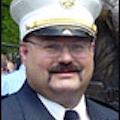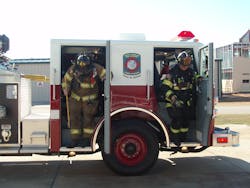About the Author

Doug Cline
Douglas Cline, is a 28-year veteran and student of the Fire Service serving as Training Commander with the High Point (NC) Fire Department. Cline also serves in the position of Administrative Assistant Chief with the Ruffin Volunteer Fire Department.
Cline, a former Fire Chief, is a North Carolina Level II Fire Instructor, National Fire Academy Instructor and an EMT-Paramedic instructor/coordinator for the North Carolina Office of Emergency Medical Services. Cline is a member of the North Carolina Society of Fire Service Instructors and the International Society of Fire Service Instructors where he serves on the Board of Directors as the First Vice President. Cline also has on the FEMA grant criteria development committee, peer reviewer for the Fire Act Grants, the Northern Director for the Piedmont North Carolina Fireman’s Association, Piedmont Director for the North Carolina Fallen Firefighters Foundation and Southeastern Association of Fire Chief’s Conference planning committee. Chief Cline also serves as Second Vice President of the Southeastern Division of the International Association of Fire Chiefs.
Cline was honored as the International Society of Fire Service Instructors (ISFSI), 1999 George D. Post International Instructor of the Year. Cline is also a member of National Association of EMS Educators (NAEMSE). He holds a Bachelors Degree in Social Services with a Minor in Education from Concord University.
Cline is a well known international speaker presenting dynamic power packed programs on instructor development, officer development, rapid intervention team training and firefighter safety and survival. Cline also is a highly published author with the most recent publications being with Thomson-Delmar Learning. The Publications are the Company Officer Test Preparation Guide Book with a scenario training DVD. Chief Cline is the technical content advisor for the Rapid Intervention Team Book published by Thomson-Delmar Learning and contributing author to the instructor support materials for the Rapid Intervention Team Book published by Thomson-Delmar Learning, test bank developer for the Fire Department Incident Safety Officer Book and contributing author to the instructor support materials for the Rapid Intervention Team Book published by Thomson-Delmar Learning. Chief Cline has also been a contributing author and reviewer to several of the IFSTA and Brady Emergency Medical Technician texts.
Cline hosts the monthly “Training and Tactics Talk” pod cast on Firehouse.com. Cline also has multiple training videos with the Fire Emergency Training Network (FETN) and American Heat to include, Rapid Intervention Team Training, Vehicle Fires, Hose line Management, Emergency Vehicle Operations and Fire Ground Safety and Survival. Cline is also a contributing editor to Firehouse.com and The Pennsylvania Fireman Magazine.
